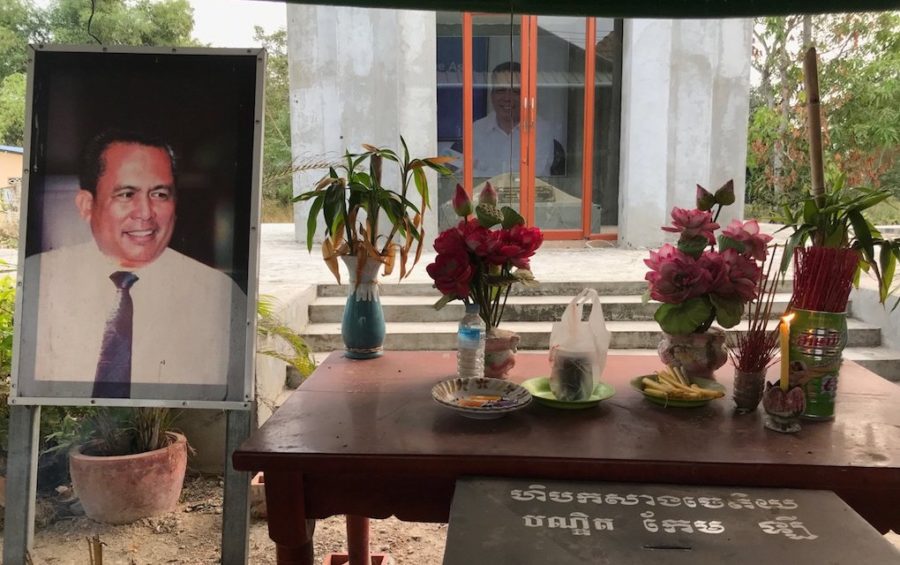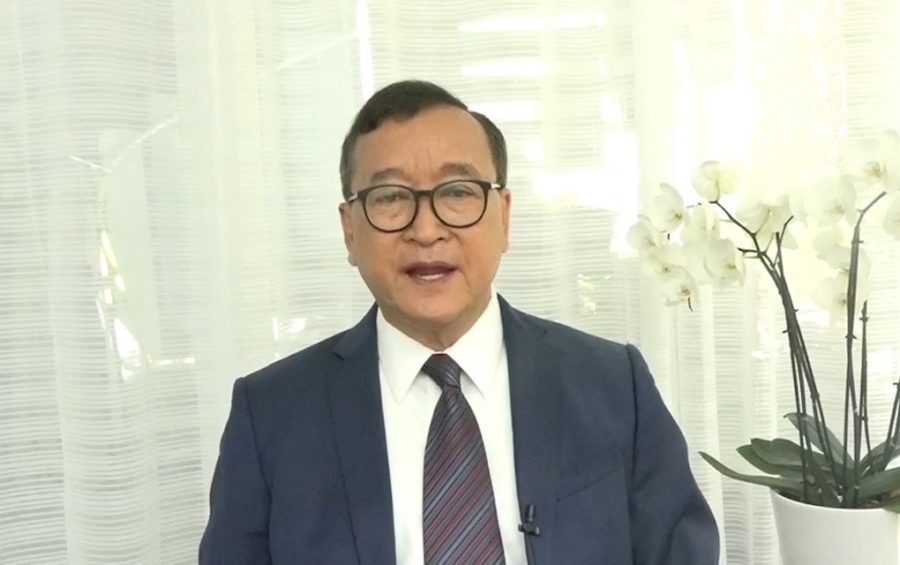An online petition launched on Tuesday by the outlawed main opposition party calling for investigations into extrajudicial killings in Cambodia, and foreign visa sanctions and the freezing of assets of Prime Minister Hun Sen and others has gained more than 400 signers, with goals of half a million signatories.
The Change.org petition from the dissolved CNRP highlights the murders of five individuals dating back to the late 1990s, including slain political analyst Kem Ley, who was shot dead four years ago last Friday.
“We demand justice through independent investigations of these killings. There will be no real peace until we create an end to impunity together,” the petition states.
It also advocates for the state signatories of the 1991 Paris Peace Agreements to impose visa sanctions and freeze assets of Hun Sen and “those directly implicated in the extra judicial killings.”
Mu Sochua, a deputy president of the outlawed CNRP, said the party was seeking support from Cambodians, who could sign anonymously if they wanted, as well as human rights organizations around the world.
The CNRP intended to lobby Paris Peace Agreements signatory nations to use U.N. protocols to demand independent investigations into extrajudicial killings, as well as employ the principle of universal jurisdiction so that a foreign court could accept a complaint from a victim’s family member if the complainant is a citizen of that country, Sochua said in a message.
“If Hun Sen does not comply, it is a clear indication that he does not want the truth to be told,” she said.
Sochua, who fled Cambodia to avoid arrest following the 2017 dissolution of the CNRP by the Supreme Court, said that the party has been successful in its foreign relations activities, including getting U.S. lawmakers to push ahead legislation and individual sanctions and assets freezes against Cambodian officials.
The U.S. House of Representatives last year passed the Cambodia Democracy Act of 2019, a bill that would sanction top Cambodian officials over democratic and human rights concerns.
Sochua added that Sam Rainsy, the CNRP’s co-founder, is well known by E.U. parliamentarians.

Rainsy, who also lives abroad to avoid a slew of court convictions that he calls politically motivated, announced the campaign on Friday in a video posted to his Facebook page in which he called for an end to the culture of impunity, violence, injustice and criminal activity that is exercised by powerful people.
Rainsy questioned the official investigations into prominent killings that have occurred since Hun Sen began leading the nation 35 years ago, with Rainsy alleging that the murders were backed by the state.
The “campaign to end impunity in Cambodia” was posted on the fourth anniversary of the fatal shooting of political analyst Kem Ley, which was again marked by restrictions by authorities on public memorials for the popular intellectual.
The gunman who killed Kem Ley is serving a life sentence in prison, but many continue to suspect the shooting was a hired hit against the well-known government critic.
In the video, Rainsy lists several high-profile murder cases in which he said justice had not been delivered to the victims and their families. Among them, he mentions the grenade attack on his 1997 Phnom Penh rally that killed at least 16 people and injured more than 150, according to Human Rights Watch, as well as the killings of Royal Ballet dancer and actress Piseth Pilika in 1999, Venerable Sam Bunthoeun in 2003, union leader Chea Vichea in 2004, environmental activist Chut Wutty in 2012 and Kem Ley in 2016.
“This campaign to end impunity in Cambodia is meant to find justice for the victims and their families and to end the habit of political violence in Cambodia,” Rainsy says in the 10-minute video. “This is an important thing and in line with the will of people who want to live in a nonviolent society, with full freedom with justice and respect for proper democratic principles.”
“The prevailing culture of violence and impunity is a legacy from the Khmer Rouge regime in the mid-1970s,” Rainsy said in a Facebook post accompanying the video. “Hun Sen, who was a former military commander under Pol Pot, has been perpetuating this culture. Ending impunity requires a democratic change.”
Eng Chhai Eang, another CNRP deputy president, said they aim to collect 500,000 signatures and then submit the petition to the International Court of Justice, but signatories’ names will be kept confidential.
During the campaign, he said that organizers would compile a white paper detailing high-profile political murders since the signing of the Paris Peace Agreements, as well as videos about the cases featuring accounts from international lawyers, the deceased individuals’ family members and others.
Chhai Eang said he believed the “culture of impunity” would not end under Hun Sen’s government.
“If we rely on the law in Cambodia, we will still rely on Cambodian courts, and we cannot end that impunity because we know already that the current court in Cambodia is a court that is under the power of Mr. Hun Sen, and it is not independent, but a court under orders, so that people might say it’s being directed by a remote control.”
Justice Ministry spokesperson Chin Malin dismissed the petition, saying that justice had already been delivered to families of the deceased in most cases. Last week, Malin told VOD that Kem Ley’s killer was already sentenced while “those involved are under investigation and court procedures.”
“In this season, it is a common time for the opposition group to exploit Dr. Kem Ley’s death, as they have done every year,” Malin said on Monday, repeating similar remarks he made last week.
The official said leaders of the dissolved opposition party made it their job to file complaints against the government in an effort to make political gains.
Though social researcher Seng Sary would not speculate on the potential results of the CNRP’s campaign, he said he thought it was a positive move aimed at ensuring that the families of victims find justice.
“The foundation of justice is very important for a society to stand, and even communist countries also stand on providing justice for their people,” said Sary, who is secretary of the Kem Ley Foundation, a group organized by the analyst a month before his death to encourage more sophisticated political dialogue.
“Even though some freedoms in communist countries are blocked, justice is the priority because that is the issue that causes social division,” Sary added.
Additional reporting by Matt Surrusco
(Translated and edited from the original article on VOD Khmer)












